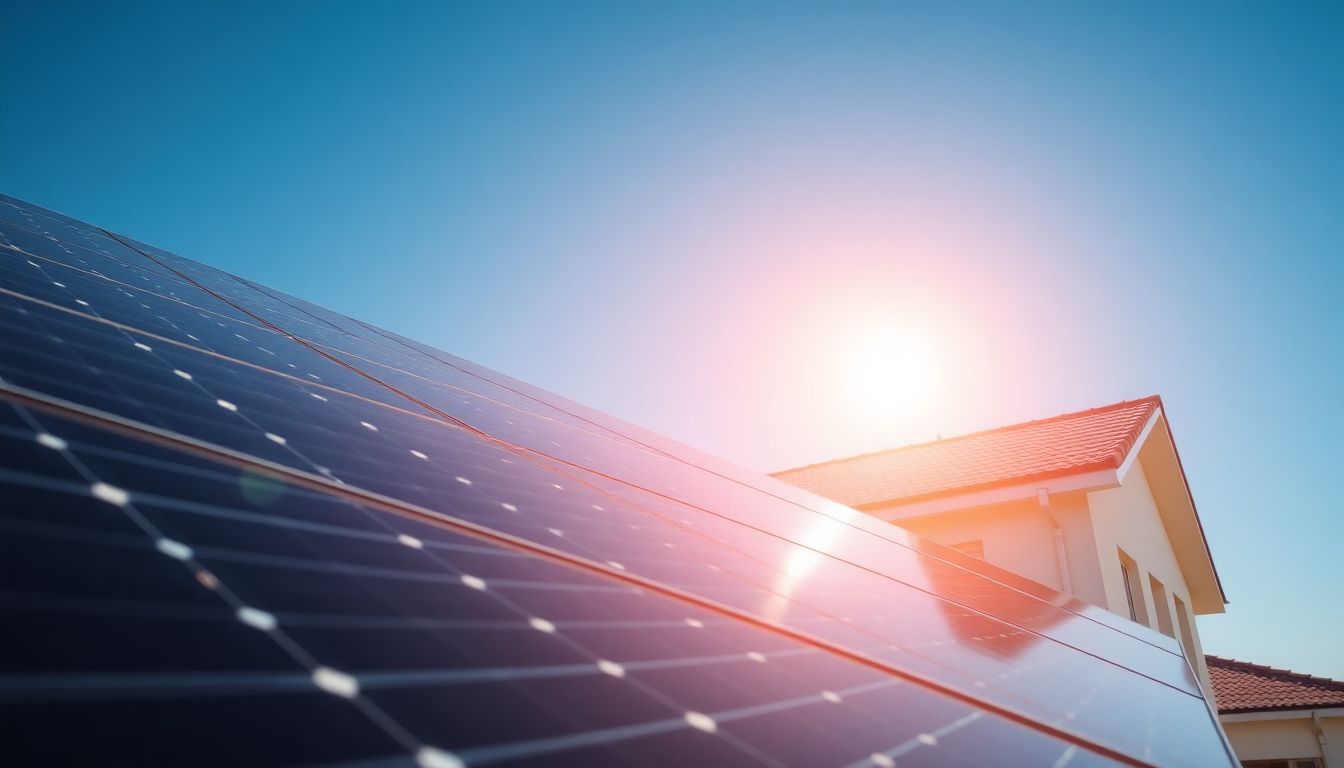
Is Solar Power Worth It For Homeowners? A Comprehensive Guide
Are you tired of seeing your electricity bills climb higher each month? Many homeowners feel the same way. Solar power offers a possible way out. This guide gives a fair look at the value of solar energy for homeowners. We'll examine benefits, drawbacks, and what to consider before making a choice.
Understanding Solar Power Basics
Let's explore the basics of solar energy. This section explains how it works and what makes up a solar system.
How Solar Panels Work
Solar panels capture sunlight and transform it into electricity. This happens through the photovoltaic effect. Photons from the sun hit the panel. This creates an electric field that causes electricity to flow.
Types of Solar Panel Systems
There are several types of solar systems. Grid-tied systems connect to the public power grid. Off-grid systems operate independently, often with battery storage. Hybrid systems combine both, offering flexibility. Your choice depends on your energy needs and goals.
Key Components of a Solar System
A solar system involves more than just panels. Inverters convert DC electricity to AC. Racking secures panels to your roof. Monitoring systems track performance. Each piece plays a role in efficient energy production.
The Financial Benefits of Solar Power
Solar power can lead to significant savings. Let's examine the financial upsides of going solar.
Reduced Electricity Bills
Solar panels can drastically lower your electricity bill. Some homeowners eliminate it entirely. Net metering allows you to sell excess power back to the grid, creating credits on your account. Imagine getting paid for the energy you produce!
Solar Incentives and Rebates
Governments offer various incentives to encourage solar adoption. A federal tax credit can cover a large portion of system costs. States and local areas may provide rebates or other financial assistance. Research what's available where you live.
Increasing Home Value
Homes with solar panels often sell for more. Studies show buyers value energy-efficient features. A solar system can be a selling point that boosts your property's appeal.
The Environmental Advantages of Solar Energy
Beyond money, solar power offers environmental benefits. Let's check into the green side of solar.
Reducing Carbon Footprint
Solar energy is a clean alternative to fossil fuels. It generates electricity without emitting greenhouse gases. By using solar, you shrink your impact on the climate.
Conserving Natural Resources
Solar reduces our reliance on coal, oil, and natural gas. These resources are finite and contribute to pollution. Solar taps into a never-ending energy source: the sun.
Promoting Energy Independence
Solar allows you to generate your own power. This lessens dependence on large, centralized power plants. It can be empowering to control your energy future.
Potential Drawbacks and Considerations
Solar isn't perfect for everyone. Let's look at possible downsides.
Upfront Costs and Financing
The initial investment in solar can be high. However, financing options are available. Loans and leases can spread out the cost over time. Carefully weigh your budget and financing options.
Solar Panel Efficiency and Lifespan
Solar panels degrade over time. Their efficiency slowly decreases. Regular maintenance ensures optimal performance. Panels typically last 25-30 years.
Aesthetic Concerns and Space Requirements
Some find solar panels visually unappealing. Roof space is also a factor. Not all roofs are suitable for solar. Consider these points before committing.
Making the Right Decision: Is Solar Right for You?
Deciding if solar is right takes careful thought. Here's how to assess your situation.
Assessing Your Energy Needs
Analyze your energy consumption. Review past electricity bills to understand your usage patterns. This helps determine the right size solar system for your home.
Evaluating Your Roof and Property
Assess your roof's suitability. Check sun exposure, angle, and shading. A south-facing roof with minimal shade is ideal.
Getting Quotes and Comparing Options
Get quotes from multiple solar installers. Compare prices, equipment, and warranties. Choose a reputable company with experience.
Conclusion
Solar power presents both advantages and disadvantages for homeowners. Reduced bills and environmental benefits are strong reasons to consider it. Upfront costs and aesthetic issues are important to keep in mind. The decision depends on your unique needs and circumstances. Research your options and see if solar aligns with your goals.